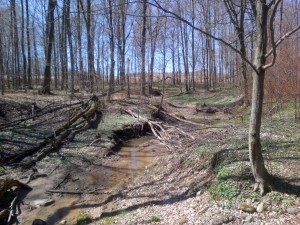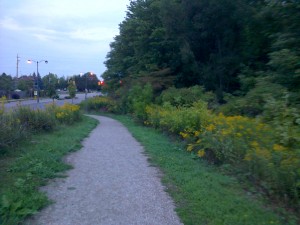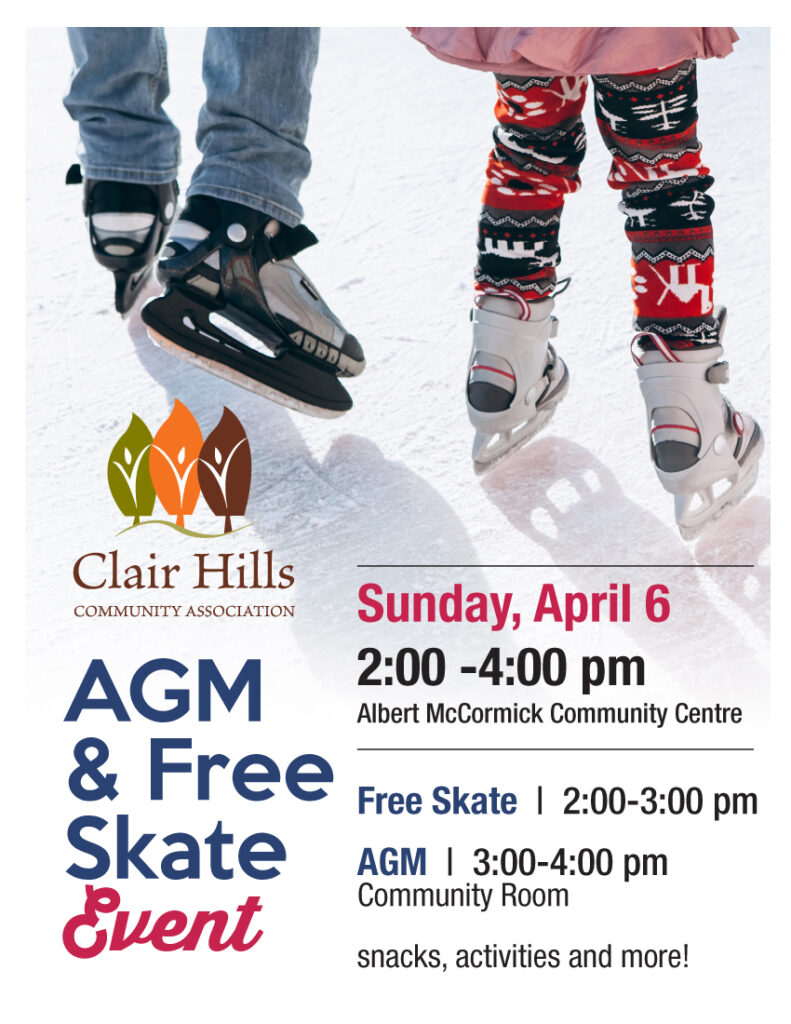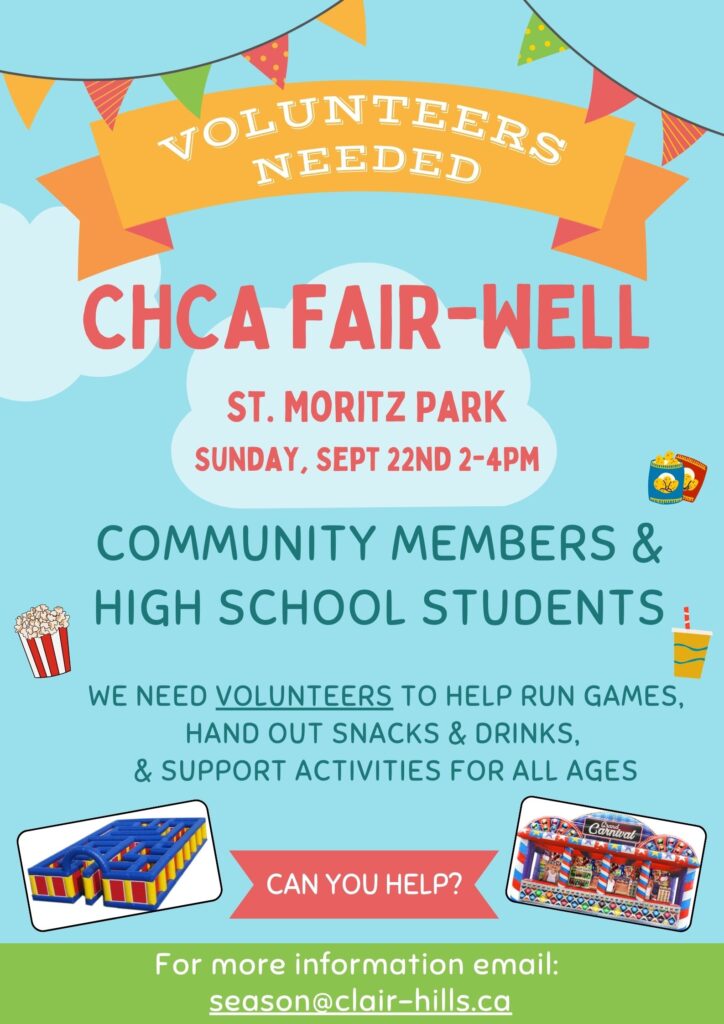Learn how you can protect our trees, parks and natural areas
City Trees
The City of Waterloo maintains over 30,000 trees on public streets as well as all the trees in parks. And every year, staff plant and mulch 300-500 additional trees within the City.
During dry spells, newly planted trees are susceptible to drying out even with the protective mulch barrier. Although the City has recently initiated a watering bag program, there are still many more trees that could use a helping hand during the summer months. A couple of cans of water (20 gallons) twice a week during dry conditions is very inexpensive (less than 4 dollars for 2 months) and will go a long way in helping Waterloo’s trees grow.
All trees on public property are protected under our Tree By-law. This means that no one is to cut, damage, remove, or attach anything to a public tree. If you have a concern about a tree, please call, and an arborist will be there to address your concern.

Please stay on the official trails that were designed for the area and do not create additional trails from your rear yard or to other locations within the natural area.

Trails through natural areas are designed to allow residents to enjoy the natural feature while minimizing disturbance to the feature.
Parks and Natural Areas
Living near a park or natural area is both a pleasure and a privilege, and with it comes responsibility. In order for all residents to enjoy the area equally, here are some things to consider:
Children
Please help to encourage children to respect and care for their park by asking them to stay on the trails, observe wildlife and their homes from a distance, and be careful not to damage the native vegetation and trees.
Encroachments
When encroachments (using public land as an extention of ones own property) or illegal access (accessing parkland with equipment without proper permits) occur, it affects neighbors, communities, maintenance operations, tax payers, and the ecology and wildlife that depend on natural processes to continue.
Encroachment and illegal access negatively impacts natural areas by smothering native vegetation, introduces non-native species, compacts soils, causes erosion, causes potential for fire, and is extremely unsightly.
Encroachments include placing soil, garbage, yard waste, grass clippings, furniture, sheds, fences, play equipment, gardens, composters, vehicles, bird feeders, etc onto any public land. An encroachment also includes altering public land by mowing, pruning, or removing vegetation or soils, building bike jumps or controlled vehicle tracks.
Trails within Natural Areas
Trails through natural areas are designed to allow residents to enjoy the natural feature while minimizing disturbance to the feature. When footpaths are created by residents beyond the City’s official trail system, vegetation becomes trampled, erosion occurs, trees become stressed and invasive plants-such as garlic mustard use the condition created to become established in these disturbed soils.
Please stay on the official trails that were designed for the area and do not create additional trails from your rear yard or to other locations within the natural area.
Wildlife
Observe wildlife from a distance in order to avoid unnecessary confrontations while respecting the wildlife and it’s habitat. And, please be respectful of the inhabitants of the your park and do not destroy their burrows, nests or other habitat.
Pools, Hot Tubs, and Rear Yard Drainage
Pool, hot tub, and rear yard drainage is generally laiden with chemical &/or the pooling of rear yard drainage can have a negative impact on the surrounding vegetation, especially from salt water systems.
To drain a pool or hot tub, place the drain tube on your lawn away from public park land. Allow the water to filter into the soils in your yard.
Dog Feces
Please dispose of dog feces in your green bin (without the plasitc bag). Using public garbage cans cause unsanitary conditions for staff as well as offensive odors to park users.
The City of Waterloo co-ordinates a program called Partners-in-Parks. Through this program your neighbourhood may adopt the park which could include, litter clean-ups, and mulching trails.
For More Information
Phone: 519-886-2310
Fax: 519-886-5788
Email: environment@waterloo.ca
TTY: 519-786-3941




